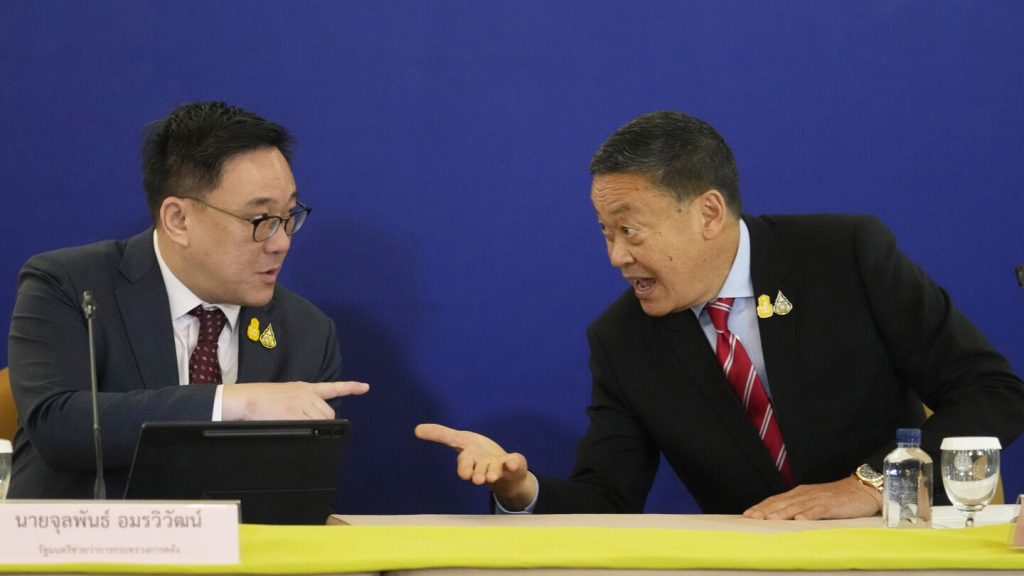Thailand’s Prime Minister Srettha Thavisin announced a plan to stimulate the economy by providing digital cash handouts of 10,000 baht ($275) to an estimated 50 million Thais for spending at local businesses. The 500-billion-baht ($13.7-billion) plan will be mostly funded by the 2024 and 2025 fiscal budgets and is expected to boost GDP growth by 1.2 to 1.6 percentage points. The World Bank estimated Thailand’s GDP growth at 1.5% in December, and the plan includes payouts to about 17 million farmers.
The digital purchases will be limited to recipients’ own districts and cannot be used for items like oil, services, and online purchases. Despite criticism from economists, who argue there are more effective ways to promote sustainable economic growth, Srettha called the project a “life-changing policy for the people.” The ruling Pheu Thai party had initially suggested digital wallet payments for all Thais 16 and older but the current plan is limited to lower-income individuals. The government was also criticized for considering borrowing to fund the plan, which would increase public debt.
Thailand’s central bank has resisted pressure to boost the economy by cutting interest rates, maintaining its policy unchanged at a recent meeting. However, analysts expect the Bank of Thailand to cut its 2.5% benchmark rate later in the year due to falling inflation. While the economy is not in crisis, it does require more support according to Gareth Leather of Capital Economics, who predicts a rate cut in June. Thailand’s high levels of household debt and higher interest rates can discourage spending and investment, making a rate cut beneficial for the economy.
The plan was a major campaign promise by Srettha’s Pheu Thai party before last year’s general election and has been criticized for its limitations. While the government aims to target lower-income individuals, defined as those with incomes not exceeding 840,000 baht ($23,000) and savings not exceeding 500,000 baht ($13,700) in financial institutions, some argue that the plan may not be the most effective method for sustainable growth. The central bank’s decision to maintain its policy reflects a cautious approach to stimulating the economy, but a rate cut later in the year is expected to provide the necessary support.
Despite criticisms and concerns over the effectiveness of the plan, Srettha emphasized the importance of transparency and legality in rolling out the stimulus package. While the government had initially faced backlash for suggesting borrowing to fund the plan, the decision to utilize existing fiscal budgets alleviates some concerns. With the central bank likely to cut interest rates in the coming months, Thailand’s economy is poised to receive the necessary support to promote growth and recovery. The success and impact of the digital cash handouts will be closely monitored as Thailand navigates its economic challenges.


